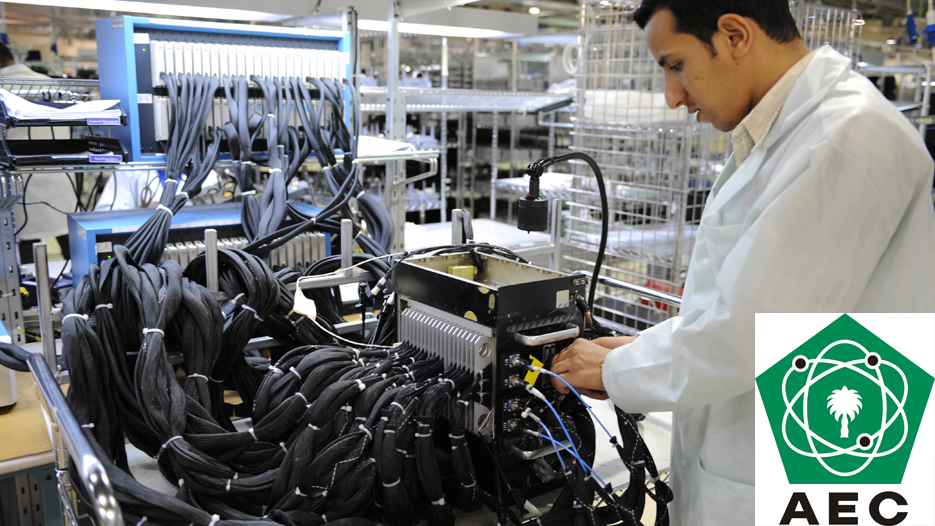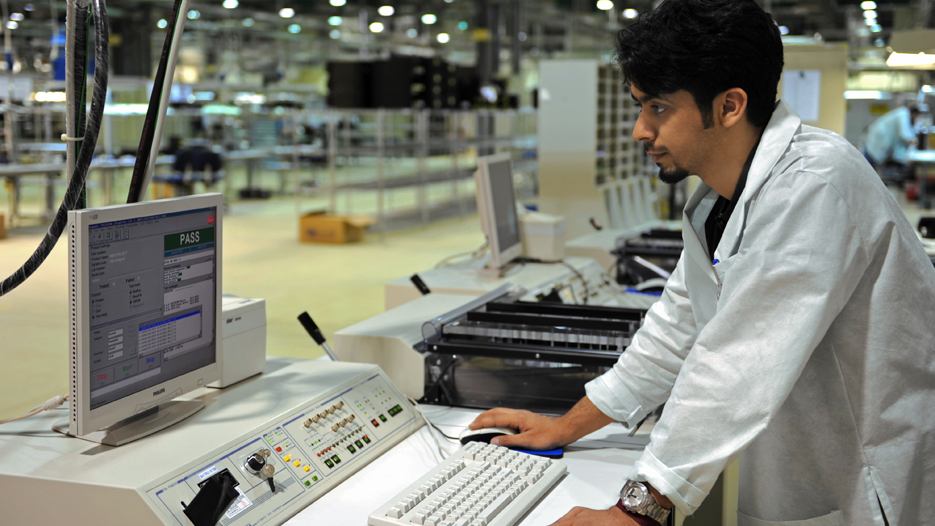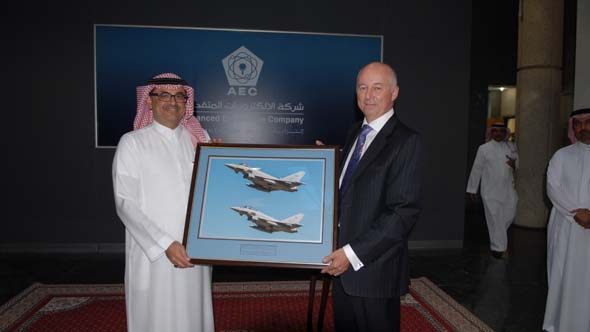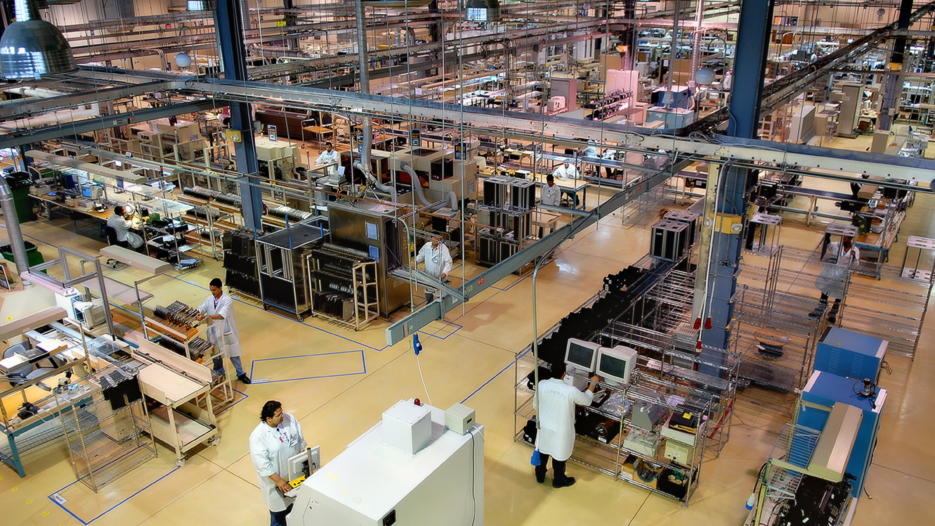Increased military spending to boost manufacturing and knowledge sectors creating advanced jobs and further diversifying Saudi economy
The top three largest defense spenders in the world are the US, Russia, and China. According to 2014 figures compiled by the Stockholm International Peace Research Institute, Saudi Arabia comes in as a close fourth, having spent an estimated $80.8 billion dollars up by 17% from 2013.

By Isslam Mubarak and Peter Matay
July 2015, Riyadh- The top three largest defense spenders in the world are the US, Russia, and China. According to 2014 figures compiled by the Stockholm International Peace Research Institute, Saudi Arabia comes in as a close fourth, having spent an estimated $80.8 billion dollars up by 17% from 2013.
In 2014-2015, regional tensions intensified because of the ongoing Syrian civil war and the rise and spread of ISIS as well as the conflict in Yemen. It is estimated that due to this, in 2015, Saudi Arabia would further increase its defense expenditure to over 80 billion dollars. Saudi Arabia’s 2015 fiscal budget was the largest in the country’s history, with expenditures of 860bn Saudi riyals (US$229bn) planned. The budget did not include an estimate for total defence spending. The Kingdom has the best-equipped armed forces in the region, with military numbers increasing each year. Today, the country has more than 227,000 troops, which consists of 75,000 in the army, 13,500 in the navy, 100,000 in the National Guard, 20,000 in the air force, and many more personnel committed to the security of the country.
For more than 30 years, the Kingdom of Saudi Arabia has had an offset agreement with the United States, France, and United Kingdom. The Ministry of Defense first introduced offset deals in 1983. The deal specifies that the successful bidder of the 3.9 billion dollar contract would build a military command and control center.
Furthermore, the deal requires that the bidder would have to invest the equivalent of 35% of the value of the technical and service parts of the contract in joint ventures that would create businesses in the country and offer technical jobs to the citizens of Saudi Arabia.

Having close ties with these foreign allies has given them access to training and equipment. These offset agreements have opened the door to foreign investment in the country, and has enabled the growth of the Saudi economy, transfer of technology and innovation and boosted employment for its citizens. The Economic Offset Program (EOP) stimulates maintenance and training programs, development assistance, and local assembling and manufacturing operations in the country.
After winning the contract by Boeing and Westinghouse, Boeing Industrial Technical Company was established and began to fulfill the offset requirements. Furthermore, similar contracts were developed with France and the United Kingdom. DCN, a French company, supplied the Royal Saudi Navy with frigates and tankers, while UK’s BAE Systems provided the country with Tornado aircraft and Eurofighter Typhoons.
The Kingdom regularly buys modern equipment from its allies. The country has an increased appetite for arms, due to perceived threats from neighboring countries. Along with bettering the security of the country, these new advancements are enhancing the economy, creating employment opportunities, and increasing foreign direct investment.
For example, according to Saudi Arabia’s Economic Offset Program (EOP), by the end of 2006, 36 companies have been established with a total capitalization of $4.5 billion.
On the employment front, EOP reports the creation of about 6,500 jobs, or 120 to 150 advanced jobs for every $1 billion in contract value.
The EOP has generated heaps of new companies that employ thousands of workers across all sectors. Foreign companies have joined together with Saudi firms to transfer skills and prepare locals to work more independently in the future.
After the first offset program, signed by US companies, Boeing and General Electric, the most successful companies created as a result of the 1984 $5.6 billion Peace Shield contract, were the Alsalam Aircraft Company, Advanced Electronics Company, Aircraft Accessories and Components and the Middle East Propulsion Company and International Systems Engineering.
In June 2014, the Advanced Electronic Company (AEC) became the first approved Eurofighter Typhoon avionics repair agent outside of Europe. Currently, they are an approved supplier to BAE Systems for two avionics boxes on the RSAF’s typhoon aircraft. After this major step, AEC and BAE Systems look forward to support the defense industry in Saudi Arabia, making local support to the Royal Saudi Air Force’s Typhoon aircraft possible.

Today, more companies have been taking part in the “In-Kingdom Industrial Participation,” to further establish local Saudi capabilities that will enable repair and maintenance on the RSAF jets.
As of July 2015, BAE Systems is now working closely with Al-Salam Aircraft Company. Andy Carr, CEO and Managing Director of BAE Systems, states: “The work we have completed as a partnership has been critical in working towards our Typhoon In-Kingdom Industrialization objectives. This latest achievement follows the successful transfer of Typhoon avionic repair capabilities in Saudi business Advanced Electronics Company (AEC) in June 2014.”
The offset deals have made all this possible by empowering Saudi Arabia’s military competences, as well as enhancing its corporations with their joint venture agreements.
Along with upgrading the air force, the Kingdom is looking into advancing its ground forces through its first major purchase since the beginning of the offset deals. The government is in negotiations to purchase German battle tanks, produced by KraussMaffei Wegmann Company (KMW), altought the US$25bn was blocked in 2014, recent merger between Nexter and KMW might ease the export restrictions.
The deal is expected to become much larger, as Saudi is considering to quadruple its order. With approximately 100 billion dollars of deals signed in the last couple years, new EOP opportunities will arise and well established successful Saudi companies such as Advanced Electronics Company, will continue to further develop its capabilities.
In March 2015, BAE Systems announced that avionics components would be produced by AEC for the Hawk T-165, which are the first Saudi-produced parts ever fitted onto a BAE Systems aircraft. Dr. Ghassan Al-Shibil, President and CEO of AEC, says, “We’re delighted to build upon our close relationship with BAE Systems and make new contributions to Saudi Arabia’s Aerospace Industry.”
Over the next two years, AEC and BAE Systems will transfer the repair capability of a further 35 Avionic boxes to the Kingdom, creating 120 highly skilled technical jobs for young Saudis. Dr. Ghassan Al-Shibil, states “We look forward to developing our Typhoon capability over the next few years. We also support any project that invests in the Saudi youth. We have just signed an agreement with the Technical and Vocational Training Corporation. This will enable students to work at AEC upon their graduation.”
In June 2015, AEC endorsed an arrangement with the training corporation that will provide students with the proper courses that will prepare them to work at the Advanced Electronic Company. Dr. Ghassan says, “This is one of AEC’s continuous services to society and the success and growth of Saudi Arabia.” Moreover, in May 2015, AEC announced its annual Best Graduation Project prize. The company believes sponsoring this prize encourages and motivates students to become more innovative and hard working, in order to create projects that they can implement in real life and in future careers.

Infobox
An offset program is a mechanism to compensate the local industry for foreign purchases and to offset the effects of that purchase on the trade balance of a country. More precisely, it is the practice of requiring foreign contractors that receive government contracts to contribute to the local economy.
The Advanced Electronic Company is dedicated to further establishing In-Kingdom Industrialization, as well as empowering Saudi people. Andy Carr states, “AEC has shown over a long period of time that it is a very capable organization and takes a great deal of pride in what they do.”
The company continues to achieve great milestones and lays the foundations for other Saudi Arabian companies to succeed.
Furthermore, Raytheon Company, a technology and innovation leader specializing in defense and security, has recently recognized AEC with the Platinum Performance award at the 2015 Supplier Excellence Conference in the US. AEC was recognized for its outstanding performance in the business management, quality and service, technical, and partnership aspects of the company. Dr. Shibil’s response to the honor was, “We are proud to receive this prestigious award from a leading international company like Raytheon.
AEC and Raytheon are having long-term relationship to provide technology transfer to the Kingdom of Saudi Arabia. This award reaffirms and demonstrates our commitment to quality and the outstanding capabilities of our workforce, the majority of whom are Saudi Nationals”
AEC feels much of its success, as well as the country’s accomplishments, in recent times are because of the defense contracts. They have allowed businesses to grow and Saudi citizens to get the education and training they need to be successful.
Dr. Ghassan Al-Shibil, states “these offset agreements provide many opportunities for Saudi youth, both training and employment-wise.” Saudi Arabia is best known for its oil sector, however they have developed an entirely new industry with the defense contracts. Dr. Ghassan continues, “The advanced defense industry has provided an adequate number of jobs to accommodate thousands of new graduates.”
The outlook for the offset program remains bright as long as the military spending continues. A recent report by a consultancy A.T.Kearney states “Consider this: Between 2013 and 2025, GCC countries will have spent about $1 trillion on defense and roughly 30 percent of this is dedicated to capital expenditures. If a 35 percent offset requirement is enforced, this means a whopping $105 billion could be either reinvested or sourced domestically, creating more than 280,000 advanced jobs—84,000 in Saudi Arabia alone—and an opportunity to build sustainable value chains in the region’s nascent aerospace, automotive, and marine sectors. Because these opportunities have gone largely untapped, defense offset programs are essential to tapping them.”
The Economic Offset Program has created jobs, provided training for the Saudi youth, diversified the economy, and have helped Saudi Arabia face new threats in the region. Saudi Arabia has managed to create opportunities for investment and growth outside of their core area of business, which has predominately been the oil sector.